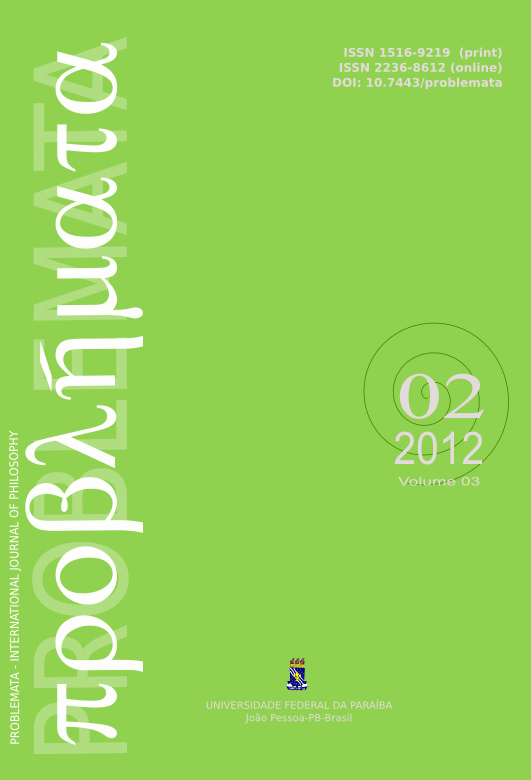PUBLIC SPHERE AS A DIALECTICAL CONCEPT: ILLUSION AND REALITY <a href="http://dx.doi.org/10.7443/problemata.v3i2.15015"><i> <b>[doi: 10.7443/problemata.v3i2.15015]</b></i></a>
DOI:
https://doi.org/10.7443/problemata.v3i2.15015Abstract
This paper argues that the discussion of The Structural Transformation of the Public Sphere is up to date as a tendency of apprehension of the public sphere in its relationships with the Capitalist Mode of Production. In this sense, along with other publications, particularly Marcuse’s One-dimensional Man, Habermas’ contributions are interpreted from the standpoint of Negt and Kluge’s critique, as stated in Public Sphere and Experience. The author concludes with the argument that the public sphere should be taken as a dialectical concept, in which historical and normative contents interwine and are made objective in the nexus between society and experience.Downloads
Download data is not yet available.
Downloads
Published
2012-12-21
Issue
Section
Papers
License
Authors who publish with this journal agree to the following terms:
- Authors retain copyright and grant the journal right of first publication with the work simultaneously licensed under a Creative Commons Attribution License that allows others to share the work with an acknowledgement of the work's authorship and initial publication in this journal.
- Authors are able to enter into separate, additional contractual arrangements for the non-exclusive distribution of the journal's published version of the work (e.g., post it to an institutional repository or publish it in a book), with an acknowledgement of its initial publication in this journal.
-
- Authors are permitted and encouraged to post their work online (e.g., in institutional repositories or on their website) prior to and during the submission process, as it can lead to productive exchanges, as well as earlier and greater citation of published work (See The Effect of Open Access).





